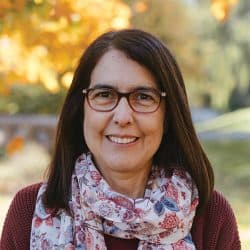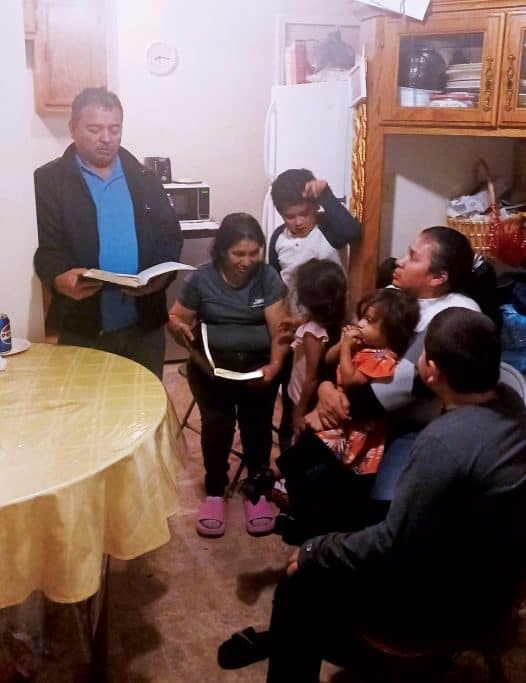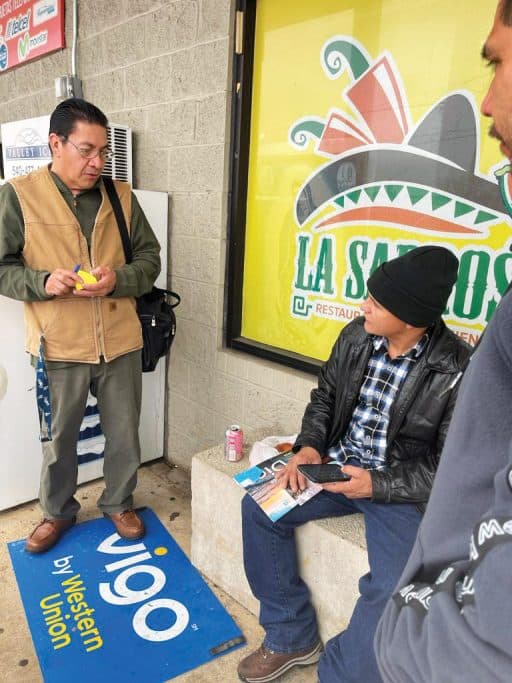Why a Disciple-making Movement?
VMMissions has shifted from traditional mission models to the multiplication-oriented model of disciple-making movements.

Santos and Paula are finished setting up their small living room for the weekly meeting. Their extended family is gathered along with a guest neighbor who is visiting for the first time. Santos opens up the meeting with a simple question: What are you all thankful for this week?
As people start sharing, church planter Alfonso Alvarado observes and shares too. He is not facilitating the group this time because he has intentionally empowered Santos and Paula to lead the Discovery Bible Study (DBS) gatherings, with the hope that they would reproduce what has been modeled for them. Equipping ordinary believers to reach out to their own circles of influence with the gospel is a paradigm shift for Alfonso. He’s learning to see himself as a catalyst for disciple-makers, not as the sole disciple-maker.
This approach of multiplying disciple-makers to start a kingdom movement in a region or a people group is what some call disciple-making movements (DMM). Multiplication is what defines a movement. That’s why many churches and organizations, including VMMissions, have moved from traditional mission models to multiplication-oriented models like DMM. We believe that the world will never be reached by the simple addition of new believers, but through multiplication. We trust God for a movement of reproducing disciples and reproducing churches.
“In a nutshell, disciple-making movements spread the gospel by making disciples who learn to obey the Word of God and quickly make other disciples, who then repeat the process,” writes Jerry Trousdale in his book Miraculous Movements. “This results in many new churches being planted, frequently in regions that were previously very hostile to Christianity.”
Today, disciple-making movements are occurring in more than 50 countries and more than 170 different people groups, including some of the most traditionally unreached. I first heard about these movements through my colleague and mentor Skip Tobin when I began working with VMMissions seven years ago. His rich experience in Southeast Asia using DMM tools helped me get in touch with these principles that are not only biblical, but also commanded in the scriptures.


Disciple-making movements are one of several defined global multiplying movements of the gospel. The DMM framework uses tools for multiplication, such as Training for Trainers and Four Fields. These tools are like different “sails” we can use to catch the wind of the Spirit in a particular context.
At VMMissions, we are using Four Fields as our sail for training and coaching all of our workers for greater impact and fruit. It is not just a strategy we employ. Strategies don’t start movements; only God does.
Jesus describes God’s kingdom as seed that is sown, (Mark 4:26-29) which gives us a picture of the kingdom’s growth process. This can be summarized within four parts or “fields.” Jesus entered new fields. He sowed the seed of the kingdom, depending on the Spirit to help the seeds germinate, then nurtured the new growth and bundled the harvest into communities. From the beginning, Jesus intended for his ministry to be reproduced through the faithful leaders he was discipling.
The Four Fields provide principles and tools that can help us join God to build his kingdom in simple, biblical, and reproducible ways. They are also marked by a strong emphasis on prayer, dependence on the Spirit, and a focus on “persons of peace.”
Church planters Armando and Veronica Sanchez go out regularly to stores, trailer parks and neighborhoods in Waynesboro, with the expectation that God has prepared people for them to meet. And they find people prepared by the Spirit to receive the gospel! Recently, they encountered a woman who was desperate because her husband was in jail. She came to Jesus and opened her house for a Discovery Bible Study. As a person of peace, this woman has a network of relationships through which the gospel is being shared and expected to spread. This is how the Sanchezes enter a new field: through abundant gospel sowing and seeking persons of peace in whom they invest.
Multiplication is a movement.
Another characteristic of this movement is a focus on obedience-based discipleship, which is immediate and many times costly. Disciples are equipped and expected to “follow” and “fish” in their everyday lives (Mk 1:17). This happens through gathering new believers for Discovery Bible Study, which is a core tool of disciple-making movements. People read a Bible story together, discover what it says, and then are challenged to immediately live out what they learned and share it with someone else.
DBS is very easy to replicate and allows the gospel to take whatever shape and form in indigenous churches as gathered believers eventually become churches. Through a DBS, Santos and Paula are learning to obey and follow Jesus, and are being equipped with simple, reproducible methods for evangelism and discipleship with the hope that they can fish for people in their own networks. The fact that these everyday believers are starting to replicate what they’ve been modeled by Alfonso is encouraging.
This is the multiplication we aim to see: disciples becoming disciple-makers. Having the end in mind—the planting of new kingdom communities—helps Alfonso and all of our church planters remain focused on equipping others from the beginning. This has meant a lot of paradigm shifts for them: starting small, investing in and equipping the faithful few takes time, patience, and faith. But, as church planter Armando Sanchez told me, in the end it produces deeper and greater fruit.
As I meet monthly with our Spanish-speaking workers, I also use the Four Fields as a tool for accountability and coaching. As we process the opportunities and challenges they face as laborers in the harvest, I ask questions like, “How are you connecting with new people in your community? How are you nurturing and teaching people to follow and fish? How are you facilitating a biblical community? Where are you stuck?”
It is a joy to hear stories about how everyday people like Santos and Paula are becoming kingdom agents. With a world desperately needing to be reached with the good news of Jesus, we are convinced that we need a movement of multiplication to carry out our Great Commission mandate.
Lizzette Hernandez is Latino Ministries Coach for VMMissions.
